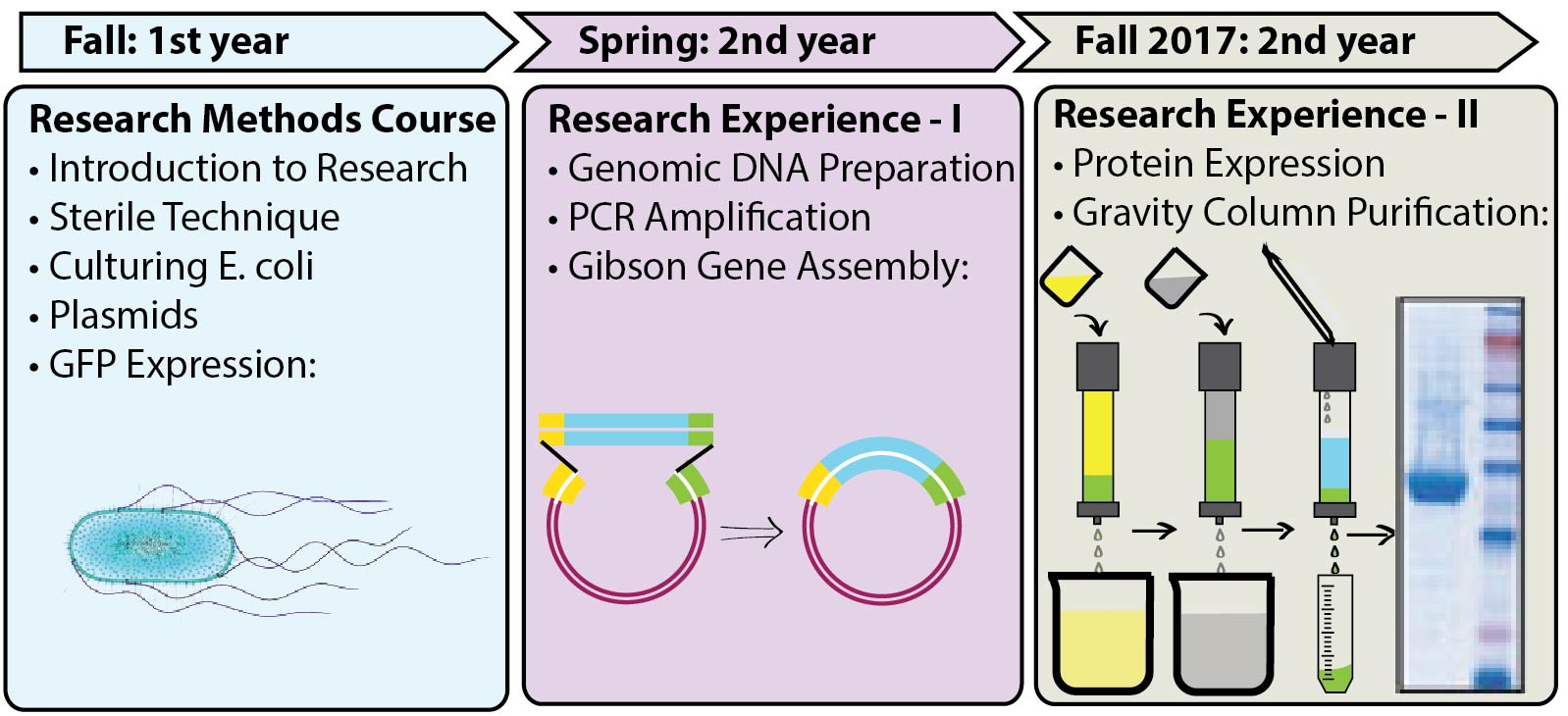The FRI is a groundbreaking, faculty-initiated program designed to transform undergraduate education by placing first-year students into advanced research labs at the beginning of their educational experience. Taught by a Ph.D.-level Research Educator and bolstered by peer mentoring, each FRI stream offers freshmen the chance to work on real-world research problems. Each “stream” teaches freshmen about research and trains them in the methods relevant to that stream. Moreover, FRI works: the students have higher GPAs (3.4 versus 3.06 for the College average) and since 2005, 143 FRI students have co-authored peer-reviewed papers on their research.
My FRI stream involves ~30-40 freshmen in research experiences as part of their formal coursework while generating useful plasmids, constructs, and proteins for our ongoing research effort (Fig. 1). The scientific focus of the stream is to clone, express, and purify epitope-tagged and mutant variants of DNA repair proteins. Students quickly master standard molecular biology and biochemical techniques. Furthermore, each project is broken down such that student team members are each responsible for a small aspect of the overarching goals. This allows team members to provide key contributions while also ensuring that individuals can succeed in their work and gain confidence at an early stage in their scientific careers. Grappling with attainable, real-world research problems is vital for teaching basic research principles and getting new students acclimated to the laboratory environment. Thus, we anticipate that challenging students with a “real world” problem will culminate in the publication of a research article in an internationally recognized scientific journal.
Soo-Hyun Yang facilitates the undergraduate projects and runs the day-to-day operation of the FRI stream. For FRI-related inquiries, please contact Soo directly.

Figure 1. BioBricks for Molecular Machines FRI Stream
Biochemistry 339M: Structure and Function of “Molecular Machines”
In this class, Chemistry & Biochemistry students are introduced to modern biophysics via studies on the structure and function of molecular machines. We cover key “molecular machines” of the cell, including DNA maintenance, translation, protein degradation, and other cellular molecular machines (Fig. 2). The class forms a key component of the newly re-designed Biochemistry degree and is generally offered in the Spring semester (please check the course catalog for detailed information). For an excellent overview of the many molecular machines of the cell, see the following video:
Figure 2. The Inner Life of the Cell. Courtesy of BioVisions.